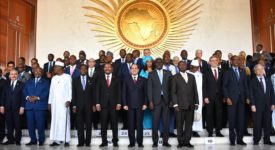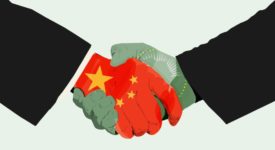Representatives of Afghanistan and the European Union last week (2 July) launched the long-awaited Cooperation Agreement on Partnership and Development (CAPD). Afghani President, Ashraf Ghani, commented that the deal would commence a new stage of comprehensive cooperation between both sides, paving the way for a deeper value-based relationship.
Frederica Mogherini, chief of EU diplomacy stressed that “much progress has been made over the past 13 years, but many challenges remain for Afghanistan on the road ahead.” She added that “the European Union has always been on the side of the Afghan people and with the Cooperation Agreement initialled, our relations will strengthen further.” The block is generally intensifying its engagement in the country, with many projects currently being implemented, including those focusing on human rights, human development or anti-corruption campaign. Thanks to the agreement, EU hopes to “deepen its support of sustainable development and a stable democratic country for all Afghans”.
The Cooperation Agreement will become the first official framework governing cooperation between the EU and Afghanistan. It includes a framework for the EU’s ten-year commitment to a partnership with Afghanistan to fulfil the Government’s “Realising Self-Reliance for Transformation” vision, which is Afghanistan’s roadmap towards economic growth and development. The agreement with the EU will create a basis for a sound relationship with Kabul in a number of areas, such as health, rural development, science and technology, rule of law, health, combating terrorism, organized crime or money laundering. Moreover, both parties will also tackle issues such as non-proliferation, nuclear security or environment.
Afghanistan is the biggest recipient of EU-funded development aid. Brussels earlier signed a deal with Kabul to provide as much as €1.4 billion in development assistance over the next seven years, which is the largest EU program in any country around the world. Most of the money is spent on supporting improvements in health, agriculture, policing and the democratic oversight of government.






